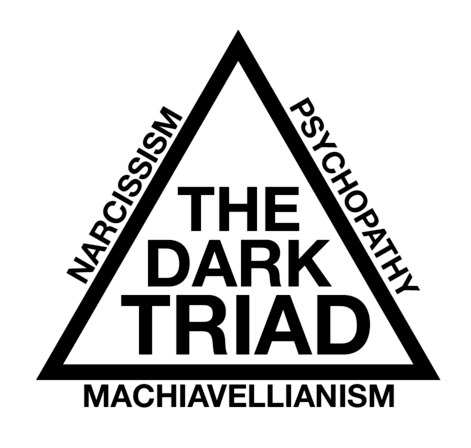
Resilience and the 'Dark Triad'
Director, Founder, Business Psychologist and Business Coach at DH Coaching & Consulting, Dannielle Haig, headed a personal development workshop powered by C&C, PA recruitment agency, teaching the importance of 'resilience'.
Haig is a psychodynamic therapist, business psychologist, business coach and founder of a psychology consultancy trying to make people's lives better in the workplace.
"Life is so stressful in a different way to how it has ever been," explained Haig. "Resilience is a mindset, it is very important to have your thoughts in right place to build resilience."
Everything you think manifests itself in the body, Haig gave the example of how when a person thinks of their favourite restaurant or dish, their mouth begins to salivate. Haig elaborated that this shows just how important the mind is over the body, that the mind activates a reaction process in the body.
From the way we think to the way behave, this manifests itself in the body. For example, if an individual suffers with insecurity and finds themselves apologising out of habit, then they are constantly making themselves subservient to others.
"How we behave is how we project ourselves into the world," said Haig. The way you perceive yourself and subsequently project yourself, tells people how to treat you.
What is resilience?
'The ability to handle stressful situations without them impacting on your mental and physical health.'
Causes of low resilience
Low resilience is not something that happens instantly, it is continuous incremental drops of stress through the work day, and throughout the year that mount up and lead to burnout.
Stress is the main cause, but what is stress?
"We live in a world with no borders or boundaries, you can contact anyone, anywhere due to technology. It is wonderful to be connected, now we can work anywhere, on the go, from the train, at our kitchen table with our children. But is this a good thing?" Haig asked.
Haig continued to explain that it has reached a point where an individual can feel as though they don't deserve any downtime, being connected at all times is a precursor to working constantly or feeling guilty about taking a break.
Other causes include lack of confidence and self esteem to a lack of autonomy and workplace bullying. For most, the largest portion of the day is spent at work, which means these issues are chronic.
Manifestation and costs of low resilience
From lack of sleep to obesity and memory loss there are many ways that low resilience can manifest itself in the physical body.
"Stress is an innate reaction, it's flight or fight," said Haig. "The cortisol stress hormone rushes through body and you are filled with adrenaline and testosterone, but instead of using it and it dissipating, we are simply flooded, there is nowhere to use it, and we have this chronically throughout the work day.
Burnout: 'Not a single event but a process in which everyday stresses and anxieties gradually undermine one's mental and physical health' ICD-11, World Health Organisation (International Classification of Diseases, 11th Revision (ICD-11))
"It is interesting that the definition of burnout is the opposite of resilience," commented Haig. "And don't let anyone say it's a snowflake generation's made-up term, 'burnout' has been classified as an actual disease and it is very real."
Dark triad
Haig specialises in 'maladaptive personalities in the workplace' and introduced the 'dark triad' at the workshop.
The 'dark triad' is a group of three independent but overlapping personality traits; narcissism, Machiavellianism and psychopathy. "These people [those identified as being 'dark triads'] are insanely successful, they are leaders of governments, CEOs, they're on the board of directors," said Haig.
Dark triad and Resilience

Haig explained that we can learn to increase our resilience by taking inspiration from the positive qualities of Dark Triads. The 'Mental Toughness' scale measures resilience based on four components:
- Commitment: Get your goals in place, and don't deviate from them. Write out your plan to succeed and always be prepared.
- Control: Take one simple step of change, believe you are in control of your destiny, practise internal control - and realise you are capable of achieving anything.
- Challenge: Don't shy away from a challenge, this is an opportunity to demonstrate capability, and if you can't do - then learn how to.
- Confidence: If you act confident people will think you are, and they'll think you are capable. People trust confidence.
How to build Resilience
Aside from working on the four components listed above to increase resilience, Haig also cited two case studies which examined how small changes can change the way we act.
Amy Cuddy, American social psychologist, widely known for her 2012 TED talk. In the talk she presented her research on her study on 'power posing', which looked at the positive impact of behaviour and high power body language versus low power body language. Watch the TED talk here:
Those in the study with low power poses had a high level of both testosterone and cortisol, whereas those that adopted the high power pose had high levels of just the testosterone; proving the link between mind and body, how your behaviour manifests itself in the body.
The second example Haig referenced was that of Dr. Kelly McGonigal, a health psychologist and lecturer at Stanford University, McGonigal conducted a study to examine the effects of stress on humans and the way we perceive stress, Haig explained. Watch the TED talk here:
Why don't you take the free Mental Toughness test today and see how resilient you are?

